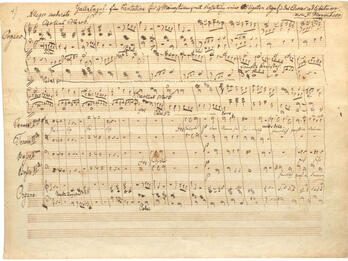Louis Lewandowski
Born in Wreschen, Prussia (today Września, Poland), Louis Lewandowski remains among the most influential mid-nineteenth-century composers of synagogue music. He was the first Jewish student admitted to the Prussian Academy of Arts, apparently following the intercession of the Berlin banker Alexander Mendelssohn. Lewandowski incorporated Eastern European liturgical modes and the Romantic style of Felix Mendelssohn into the canon of German cantorial music, and his compositions appealed widely, both during his life and for decades after it. He was appointed musical director and choirmaster of the New Synagogue in Berlin upon its opening in 1866. In addition to his career composing, Lewandowski taught vocal music at various Jewish schools in Berlin. The composer’s influence reached as far as the many Conservative and Reform congregations taking root in the United States during his lifetime. His two-part anthology of Jewish liturgical music, Kol rinah u-tefilah (Voice of Song and Prayer, 1876) for cantors and Todah w’simrah (Music of Thanksgiving, 1882) for choruses accompanied by an organ, were highly influential in the development of modern Reform, Conservative, and Orthodox liturgy in the twentieth century, albeit in a cappella arrangements for many of these more traditionally observant congregations.


